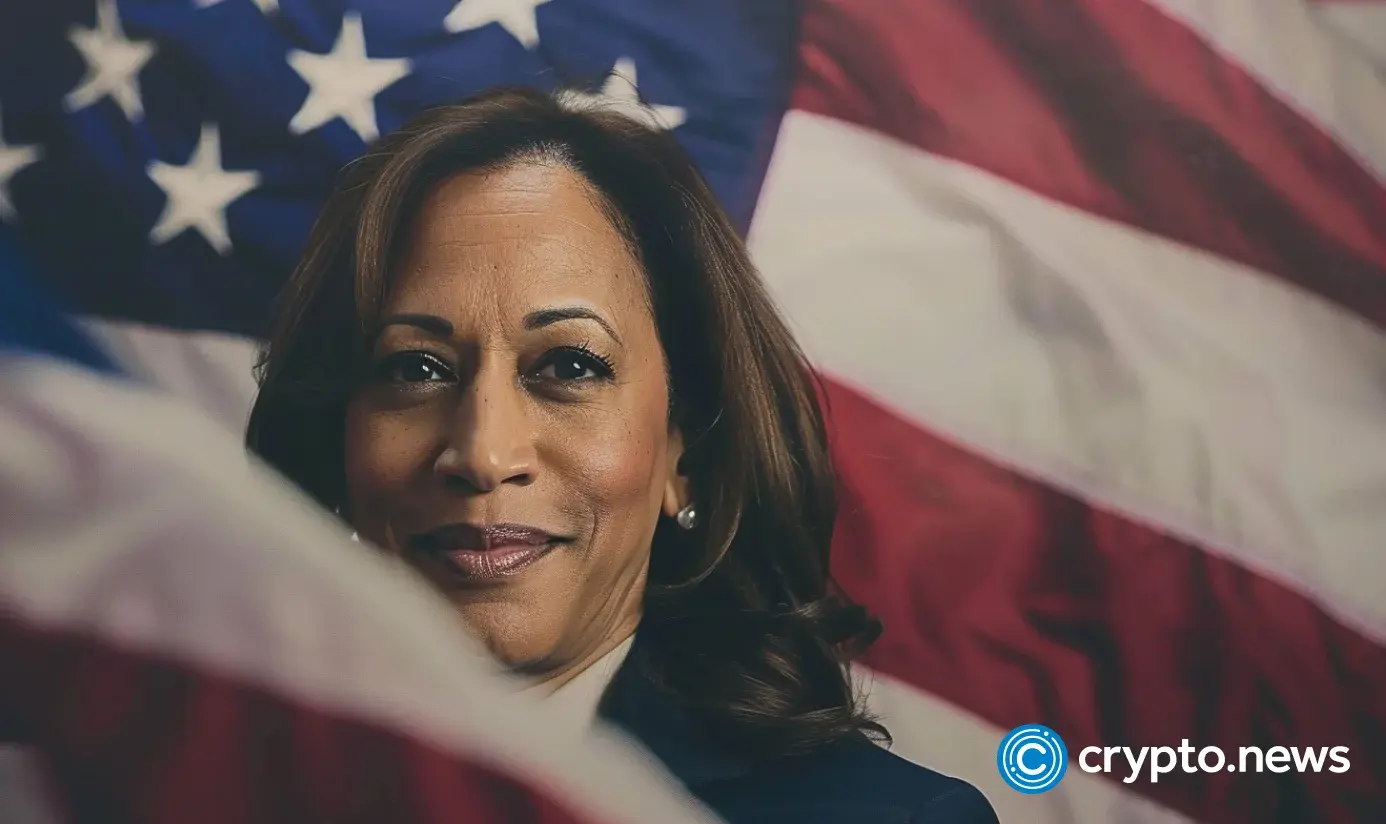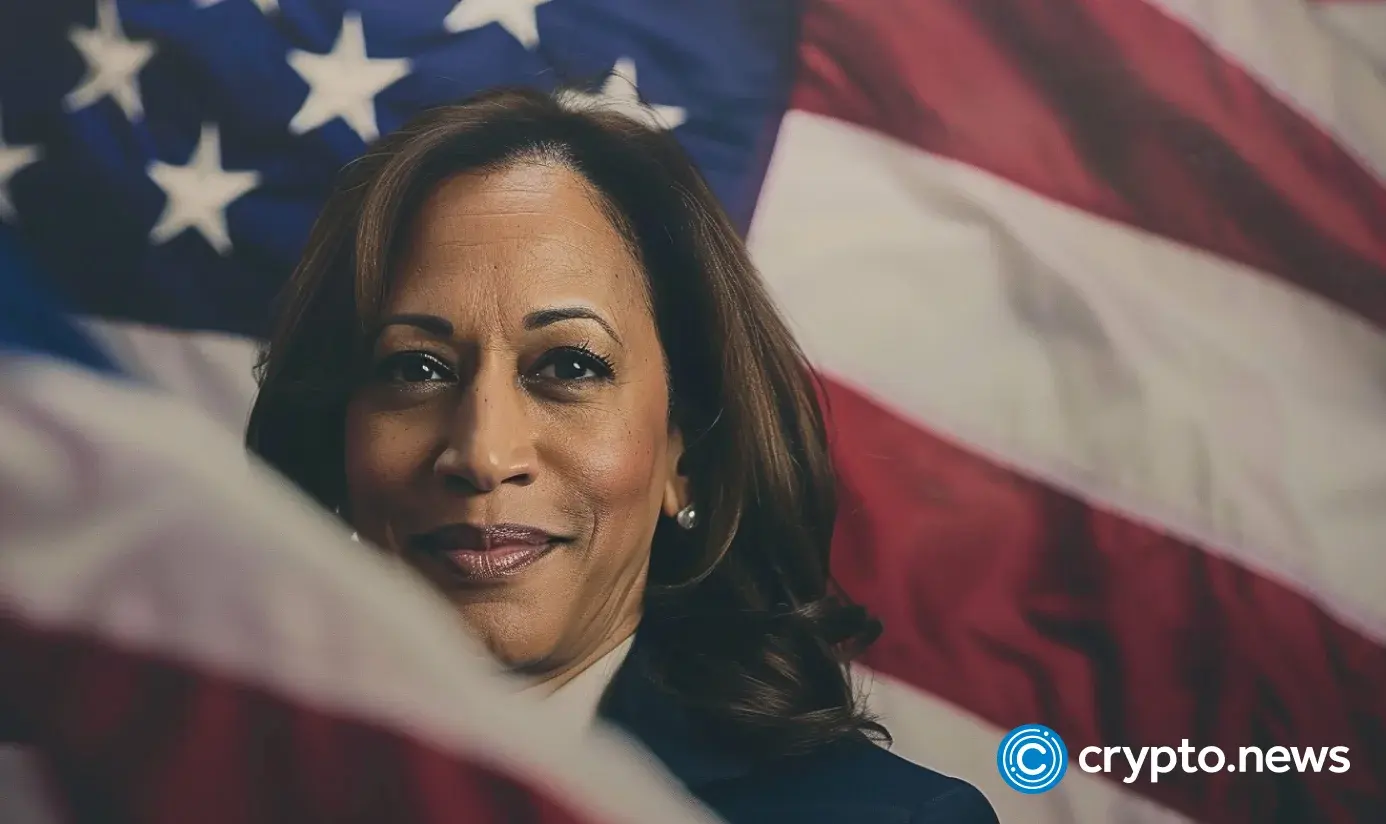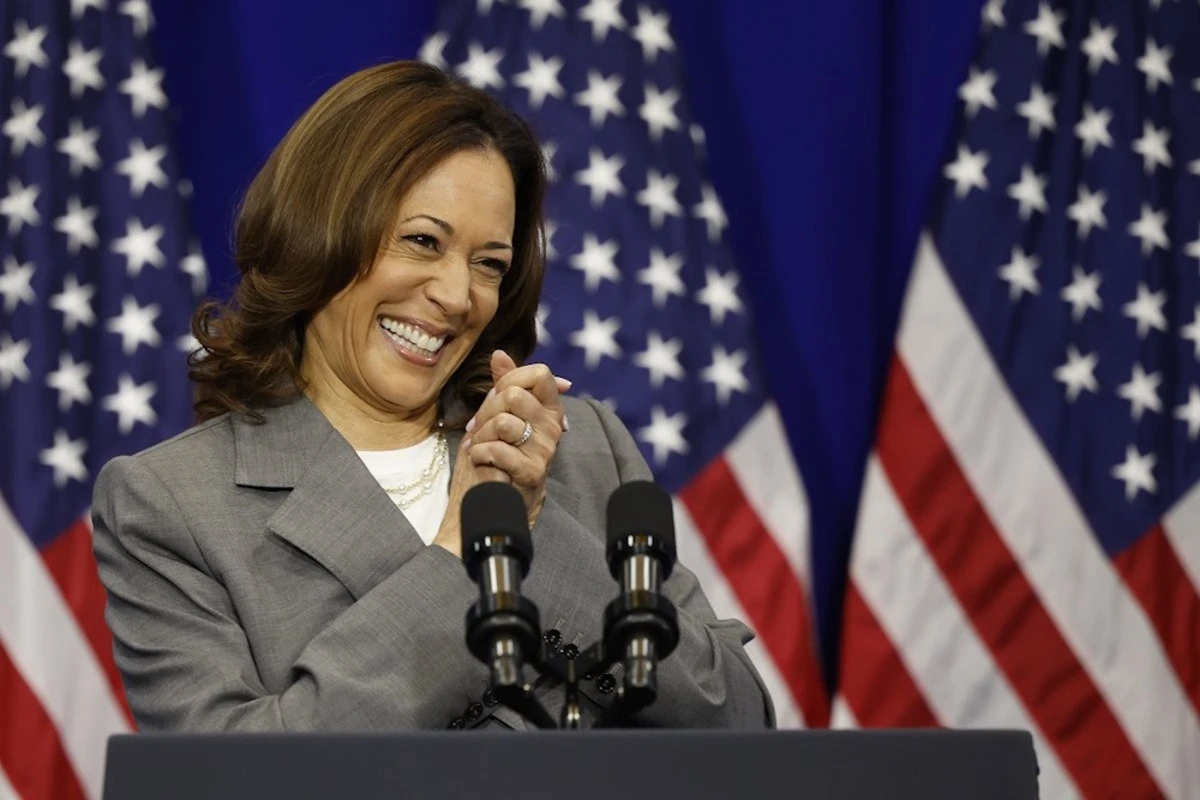Kamala Harris
Democrats launch Harris for crypto campaign to strengthen pro-crypto talking points
Published
5 months agoon
By
admin

Democratic Party lawmakers, in conjunction with Vice President Kamala Harris’s campaign team, have launched a campaign to discuss crypto industry matters.
On Aug. 8, U.S. Congressman Wiley Nickel announced he had joined the Crypto4Harris campaign and would attend the upcoming meeting on July 14. alongside industry leaders like Marc Cuban to help Kamala Harris win the crypto community’s votes.
On X, Crypto4Harris is described as a crypto advocacy initiative focused on organizing and fundraising for Harris’ Presidential campaign. The group is reportedly crafting a detailed crypto-policy framework to support the campaign’s objectives.
Kamala’s campaign team is seemingly looking to repair the vice president’s relationship with the crypto community, which criticized the Biden administration’s approach to digital currencies. Pro-crypto Democrats are now urging Harris to adopt a more favorable stance towards digital assets to rival Republicans, who have been persistent in their pro-crypto stance.
Republican lawmakers, led by former President Donald Trump, have increased their efforts to woo crypto voters, a community that could potentially account for 50 million votes in the upcoming U.S. presidential elections.
In July, at a crypto conference in Nashville, Trump attempted to link Harris with the Biden administration’s stringent regulatory stance on the digital asset industry. Although Harris has not publicly declared her position on crypto, with her team actively working to engage with the crypto sector, Trump has told his followers that she does not support crypto.
The Former President’s allegations have given Kamala’s team a tough time, and they will be seeking to counter Trump’s politics using the Harris for crypto campaign.
Recently, Congressman Ro Khanna led senior White House officials in a call with several cryptocurrency leaders and former members of the Biden administration, which some people believe is a last-ditch effort to connect with the crypto industry.
Paul Grewal, chief legal officer at crypto exchange Coinbase, said that the talks grasped the industry’s concerns, although he believes no concrete commitments were made during the discussion.
Some crypto enthusiasts on X have expressed their concerns about the Democrat’s recent shift to a pro-crypto stance, with some saying the party’s decision came a little too late.
Source link
You may like


Experts say these 3 altcoins will rally 3,000% soon, and XRP isn’t one of them


Robert Kiyosaki Hints At Economic Depression Ahead, What It Means For BTC?


BNB Steadies Above Support: Will Bullish Momentum Return?


Metaplanet makes largest Bitcoin bet, acquires nearly 620 BTC


Tron’s Justin Sun Offloads 50% ETH Holdings, Ethereum Price Crash Imminent?


Investors bet on this $0.0013 token destined to leave Cardano and Shiba Inu behind
Bitcoin
Bitcoin hits new all-time high: How long until $300,000?
Published
1 month agoon
November 10, 2024By
admin

Fueled by President-elect Trump’s victory and the stock market’s upward momentum, Bitcoin surpassed $80,000 on Sunday — a new all-time high.
Investors expect the cryptocurrency to reach six-figures sooner rather than later.
VanEck CEO Jan van Eck, in a TV appearance, predicted Bitcoin (BTC) could be valued as half of all the gold outstanding.
“I think Bitcoin will hit all-time highs today, and I think it will go further. Ultimately, I think bitcoin’s value will be half of all the gold outstanding, so you’re talking about around $300,000 for Bitcoin.”
Why only half?
Because it’s a “reasonable base assumption,” Van Eck added. Van Eck made the comment when Bitcoin surpassed $77,700 just days after the U.S. presidential election. See below.
Bitcoin bull run
Investors have been piling into ETFs, sending Bitcoin and Ethereum (ETH) on an upward momentum.
Then there was crypto’s role in the 2024 U.S. presidential election, which went from cameo to scene-stealer.
In the months leading up to Election Day, the mass media published one neck-and-neck poll after another. But Polymarket — a crypto-betting site — proved to be the more accurate gauge for which candidate voters preferred.
For what it’s worth, Vice President Kamala Harris’ pledged to embrace digital assets as an emerging technology. Ultimately, it was Donald Trump’s pandering that ultimately won over a majority of this particular slice of the electorate — a group that had made their frustrations toward the Biden administration and the SEC known.
Recall his previous administration. Trump disavowed Bitcoin at the time. But after losing the 2020 election and being saddled with legal fees, cash was needed for a re-election campaign. The then-Republican candidate saw an opportunity: capitalize on the crypto hype.
Trump sold non-fungible tokens (NFTs); hawked Bitcoin-themed sneakers; made a guest appearance at a Bitcoin conference; and promised to make the U.S. a crypto mining capital (the U.S. already does the most mining).
He and his eldest sons even launched their own coin, World Liberty Fi.
In the weeks leading up to Nov. 5, crypto analysts predicted that a Trump win would yield crypto-friendly policies and send the price of Bitcoin soaring to $80,000, or perhaps $100,000.
As this week tees off, with clarity on who will be sworn into the White House come January, it appears that Bitcoin is indeed on that trajectory.
Source link
crypto.news weekly recap
What Trump’s win means for Bitcoin, ETF inflows, SEC chair and more | Weekly Recap
Published
1 month agoon
November 10, 2024By
admin

In today’s edition of the weekly recap: Bitcoin clinches a new all-time high after the U.S. election; crypto ETFs see record inflows; FTX sues crypto.com; and observers speculate who might replace SEC chair Gary Gensler. Bitcoin hits new ATH Aftermath…
Source link
24/7 Cryptocurrency News
US Presidential Election Results 2024 Highlights
Published
2 months agoon
November 6, 2024By
admin
The U.S. presidential elections finally come to a close, with Republican Donald Trump ‘trumping’ over Democratic Kamala Harris. Recent voting results show that the Republican secured 286 electoral votes, whereas the Democratic presidential candidate secured only 224, pushing chances of the former U.S. president’s victory to take substantial weightage. With a total of only 270 electoral votes needed to bag victory, the Democratic party’s win remains alarmingly slim while Trump emerges as the talk of the town nationwide.


Kamala Harris Fumbles In US Presidential Elections 2024
As per election data from Stand With Crypto, Donald Trump currently stands strong in the presidential elections with a majority of the votes, i.e., 286 electoral votes. Other election data showed Kamala Harris stands right behind with 47.4% of the votes, i.e., 224 electoral votes. Meanwhile, Jill Stein and Robert Kennedy followed with 0.4% of votes each. This data, altogether, underscores that the Republican presidential candidate won the 2024 elections, whereas the Democratic presidential candidate lost.
Simultaneously, it’s noteworthy that this presidential election saw a substantial rise in support for pro-crypto candidates, aligning with the abovementioned results. In an X post by Thinking Crypto podcast founder Tony Edward on November 6, it was pointed out that anti-crypto candidates suffered an alarming loss in this election. Meanwhile, with his pro-crypto stance, the Republican presidential candidate appears to have stolen the spotlight.
However, Democratic Kamala Harris faced a significant setback with her diminished interest and policies surrounding crypto. Aligning with this, a recent CoinGape Media report shows that pro-crypto candidates are readying to dominate the U.S. Congress. A total of 242 pro-crypto candidates have been elected to the House of Representatives against 113 anti-crypto candidates. Also, 14 pro-crypto candidates are in the Senate as of now, while 9 anti-crypto lawmakers are also present in the Senate. Overall, it is clear that the latest U.S. presidential elections saw a substantial influence due to policies and standings on digital assets.
Further, in light of Trump resuming his role as the 47th president of the United States, the crypto horizon remains bullish. The Republican presidential candidate earlier promised to fire SEC Chairman Gary Gensler, given that he won, adding to pro-crypto support nationwide. Also, he gauged in on establishing a national Bitcoin fund and making the United States the “Bitcoin and cryptocurrency capital of the world,” which also aligns with the pro-crypto victory in this election.
What’s Happening In The Crypto Realm?
Meanwhile, with the nationwide masses getting a clear understanding of Kamala Harris’ loss, crypto participants are witnessing a paradigm shift in market sentiment. Notably, Bitcoin (BTC) touched a new ATH amid recent election developments. Further, even altcoins soared remarkably, as seen by the global market cap reaching $2.4 trillion. This bullish momentum primarily falls in line with the pro-crypto candidate’s recent win.
Simultaneously, a meme coin also emerged as a hot trend amid the elections. Notably, Elon Musk’s D.O.G.E. role under the Trump cabinet has garnered substantial optimism toward Dogecoin price. DOGE price surged nearly 13% intraday to reach $0.1902. Notably, the coin even topped the $0.2 level today, aligning with Trump’s win. Nevertheless, the Democratic presidential candidate has faced a severe setback in the U.S. 2024 elections.
Coingape Staff
CoinGape comprises an experienced team of native content writers and editors working round the clock to cover news globally and present news as a fact rather than an opinion. CoinGape writers and reporters contributed to this article.
Disclaimer: The presented content may include the personal opinion of the author and is subject to market condition. Do your market research before investing in cryptocurrencies. The author or the publication does not hold any responsibility for your personal financial loss.
Source link

Experts say these 3 altcoins will rally 3,000% soon, and XRP isn’t one of them

Robert Kiyosaki Hints At Economic Depression Ahead, What It Means For BTC?

BNB Steadies Above Support: Will Bullish Momentum Return?

Metaplanet makes largest Bitcoin bet, acquires nearly 620 BTC

Tron’s Justin Sun Offloads 50% ETH Holdings, Ethereum Price Crash Imminent?

Investors bet on this $0.0013 token destined to leave Cardano and Shiba Inu behind

End of Altcoin Season? Glassnode Co-Founders Warn Alts in Danger of Lagging Behind After Last Week’s Correction

Can Pi Network Price Triple Before 2024 Ends?

XRP’s $5, $10 goals are trending, but this altcoin with 7,400% potential takes the spotlight

CryptoQuant Hails Binance Reserve Amid High Leverage Trading

Trump Picks Bo Hines to Lead Presidential Crypto Council

The introduction of Hydra could see Cardano surpass Ethereum with 100,000 TPS

Top 4 Altcoins to Hold Before 2025 Alt Season

DeFi Protocol Usual’s Surge Catapults Hashnote’s Tokenized Treasury Over BlackRock’s BUIDL

DOGE & SHIB holders embrace Lightchain AI for its growth and unique sports-crypto vision
182267361726451435

Why Did Trump Change His Mind on Bitcoin?

Top Crypto News Headlines of The Week

New U.S. president must bring clarity to crypto regulation, analyst says

Will XRP Price Defend $0.5 Support If SEC Decides to Appeal?

Bitcoin Open-Source Development Takes The Stage In Nashville

Ethereum, Solana touch key levels as Bitcoin spikes

Bitcoin 20% Surge In 3 Weeks Teases Record-Breaking Potential

Ethereum Crash A Buying Opportunity? This Whale Thinks So

Shiba Inu Price Slips 4% as 3500% Burn Rate Surge Fails to Halt Correction

Washington financial watchdog warns of scam involving fake crypto ‘professors’

‘Hamster Kombat’ Airdrop Delayed as Pre-Market Trading for Telegram Game Expands

Citigroup Executive Steps Down To Explore Crypto
Mostbet Güvenilir Mi – Casino Bonus 2024

NoOnes Bitcoin Philosophy: Everyone Eats
Trending

 3 months ago
3 months ago182267361726451435

 Donald Trump5 months ago
Donald Trump5 months agoWhy Did Trump Change His Mind on Bitcoin?

 24/7 Cryptocurrency News4 months ago
24/7 Cryptocurrency News4 months agoTop Crypto News Headlines of The Week

 News4 months ago
News4 months agoNew U.S. president must bring clarity to crypto regulation, analyst says

 Price analysis4 months ago
Price analysis4 months agoWill XRP Price Defend $0.5 Support If SEC Decides to Appeal?

 Opinion5 months ago
Opinion5 months agoBitcoin Open-Source Development Takes The Stage In Nashville

 Bitcoin5 months ago
Bitcoin5 months agoEthereum, Solana touch key levels as Bitcoin spikes

 Bitcoin5 months ago
Bitcoin5 months agoBitcoin 20% Surge In 3 Weeks Teases Record-Breaking Potential



✓ Share: